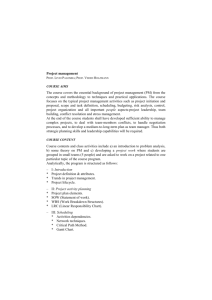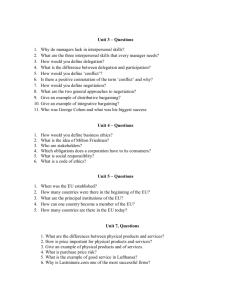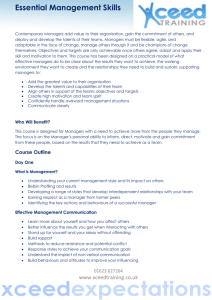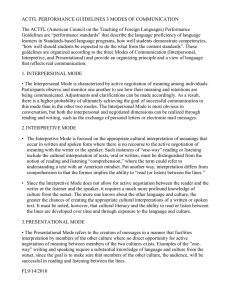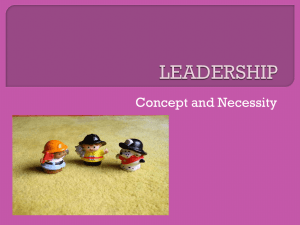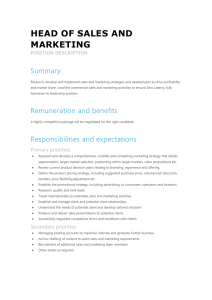skill set #1
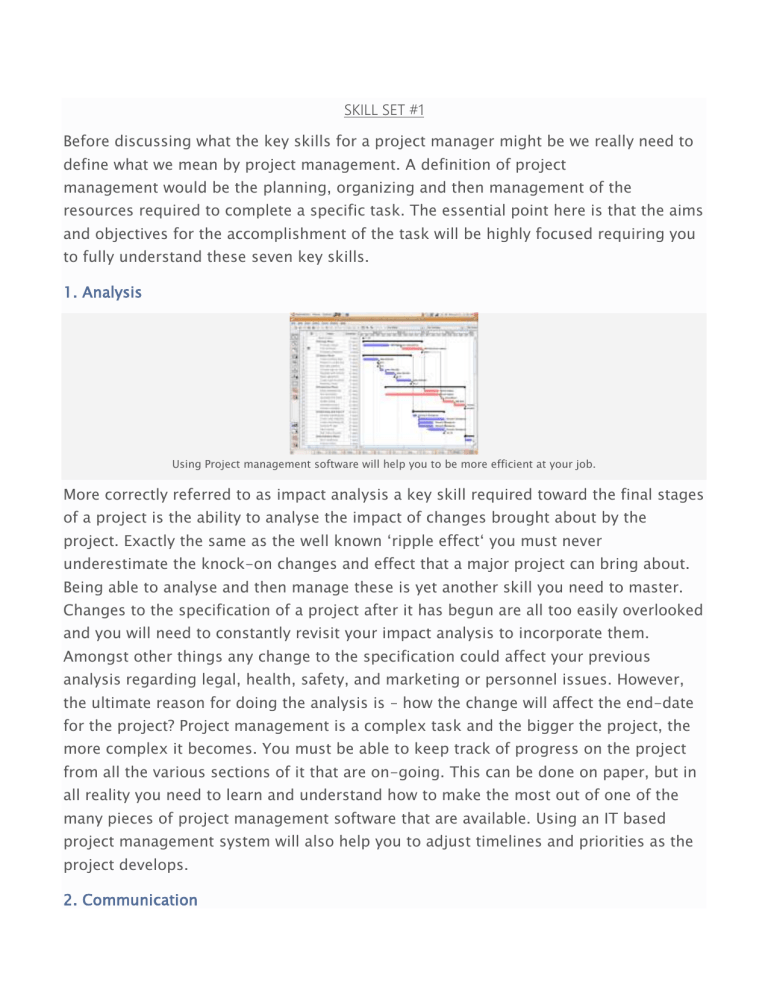
SKILL SET #1
Before discussing what the key skills for a project manager might be we really need to define what we mean by project management. A definition of project management would be the planning, organizing and then management of the resources required to complete a specific task. The essential point here is that the aims and objectives for the accomplishment of the task will be highly focused requiring you to fully understand these seven key skills.
1. Analysis
Using Project management software will help you to be more efficient at your job.
More correctly referred to as impact analysis a key skill required toward the final stages of a project is the ability to analyse the impact of changes brought about by the project. Exactly the same as the well known ‘ripple effect‘ you must never underestimate the knock-on changes and effect that a major project can bring about.
Being able to analyse and then manage these is yet another skill you need to master.
Changes to the specification of a project after it has begun are all too easily overlooked and you will need to constantly revisit your impact analysis to incorporate them.
Amongst other things any change to the specification could affect your previous analysis regarding legal, health, safety, and marketing or personnel issues. However, the ultimate reason for doing the analysis is – how the change will affect the end-date for the project? Project management is a complex task and the bigger the project, the more complex it becomes. You must be able to keep track of progress on the project from all the various sections of it that are on-going. This can be done on paper, but in all reality you need to learn and understand how to make the most out of one of the many pieces of project management software that are available. Using an IT based project management system will also help you to adjust timelines and priorities as the project develops.
2. Communication
Effective project planning underpins all project management.
If you can’t communicate, I’m sorry but you’ll never become an effective and successful project management. Any manager, but especially the project manager, has to understand that although you’re charged with ensuring the successful completion of a project – you’ll be dealing with a multiplicity of people and companies that you have to bring together in order to achieve the projects aims and objectives. If you don’t communicate effectively, either in speech, writing or presentations you won’t provide the information that your workers need to fulfill their jobs; be that in sharing knowledge, discussing ideas, providing solutions or making an executive decision.
3. Budgeting
Even if you have a team of accountants looking after the day-to-day running of the projects finances, understanding how to use a budget yourself is another essential project management skillto posses. The three key stages to a budget are preparing it, writing it and monitoring it. whilst your finance department may well be ostensibly charged with doing these things for you – as project manager you have the ultimate responsibility for the budget and need to be able to understand what you are being told about the budget. Unless your own background is in accounting you will feel obliged to accept what you’re told, if you don’t take the time to learn some basic budgeting skills. You will need these as at time you will need to know how to rationally and logically challenge budget over-runs that you become aware of as well as be able to sensibly monitor the budget as the project progresses.
4. Teamwork
The essence of any good project manager is to be a good team leader and, if necessary, be a good team player. Whilst decisions will remain your responsibility, that’s not to say that you shouldn’t encourage input from others or be prepared to work with them to help them achieve their goals too. Furthermore, by building a culture of teamwork into all aspects of the project, you will engender high selfesteem within all of the workers, meaning that they feel personally involved in ensuring the success of the project.
5. Intelligence
This doesn’t mean to say that you have to have a string of letters after your name as intelligence isn’t something you can learn. However, intelligence is something you can improve on and develop, so the more you study the chances are the more you’ll increase your intelligence. In the context of project management intelligence can be considered to be your ability to have a clear vision of all aspects of the project whilst at any one time being able to keenly focus onto a specific aspect of it. Put another way, just having the big picture will not help when you have a decision to make on a specific matter. You won’t always have the time to spend hours researching and re-reading material in order to make the decision at the time it is needed.
6. Calmness
It is almost inevitable that at times your job will be stressful, if not highly stressful.
Being able towork calmly under such conditions is an absolute pre-requisite for a successful project manager. A key point to reducing your stress levels is your ability to move on from a setback. If something goes wrong or not according to plan, don’t waste time worrying about who’s fault it might have been or get involved in a cycle of what could have been different, that can come later in your project evaluation. Instead, move swiftly on to solving the problem or rectifying the situation.
7. Time
The Project Management Life Cycle.
Quite simply – are you a good time manager? Understanding the life-cycle for project management will help you to understand how to apply the key skill of time management to it. Your time management and your ability to organize yourself and others are vitally important. Time management is much more than simply allocating portions of time to certain jobs. You need to analyze exactly what it is you’re spending your time on and how important are those tasks and portions of time to the successful completion of the project. For example, you could easily spend up to an hour a day just reading emails. This is a task you can delegate to your PA, get them to be the person
that sorts the important from the not so important, telling you what needs dealing with immediate and what can be left until later. That hour you’ve saved – you can use inspecting a part of the project checking on progress or quality etc. You should apply this time management philosophy to most things you do; do I need to attend that meeting or can I delegate someone else? Remember, you are the project manager, you are primarily there to do the strategic planning, overall monitoring and be creative and innovative in solving problems – not micro-manage everything.
SKILL SET #2
According to Vitella (2001), a project manager must have the following skills to succeed:
Leadership - inspiring others to create a vision and strive to achieve the goals
Good communication - ability to provide valuable information related to the project status in a timely and effective manner
Conflict resolution skills - assisting in resolution of any project conflicts so that the project team members all feel part of the process and want to remain involved in the project
Negotiation skills - maintaining relationships with people who are involved in the project
Team building - assists the team members in understanding their roles and responsibilities on the project and work collaboratively
Listening skills - using good listening skills to truly hear and try to understand what others on the project are trying to say
Relationship management - capable of working with all levels within the organization by building relationships with them.
Melymuka (2000) assists in identifying other skills project managers need to be effective. These include:
Ability to influence without having authority
To hope for the best but prepare for the worst
To manage, motivate and organize people
Possess core competencies in project related fields and business management
Persuasion techniques - influencing without direct authority and obtaining win-win situations
Generosity - share the glory, share knowledge, and don't blame others
Vision - understanding what needs to be done and how to get it done
Flexibility - capable of changing to fit the situation for the good of the project
Humor - seeing humor in events, laughing and going on
No Sweat - appearing like a duck on the surface but paddling like crazy under the water
SKILL SET #3
Skills
• Be able to manage financial matters
• Be able to utilize computer applications including Microsoft Project
• Have excellent team, leadership and organizational skills
• Be able to negotiate very well
• Be able to create new relationships and network with industry professionals
• Have strong stress management capabilities
• Be adaptable and professional
• Be able to delegate responsibilities
• Be able to prioritize tasks
• Be able to resolve conflicts
• Be level headed and calm
• Be respectful of different perspectives
• Be able to work with people from diverse backgrounds
SKILL SET #4
Subject Matter Knowledge
Effective project managers understand the inner workings of their organizations and know enough about their products/services to hold intelligent conversations with (1) customers, (2) stakeholders, (3) suppliers,
and (4) functional leaders within the organization.
The best project managers are excellent listeners, and view exchanges with the above groups as learning opportunities.
Project managers that are new to an organization set aside learning time each week to better understand and interact with the four groups noted above. This learning investment is paid back many times over in the form of good decisions, effective meetings, and successful project delivery (and fewer headaches!)
Project Management Tools
Effective project managers understand how , when, and why to deploy project management disciplines at different points in a project. Examples of these tools include project definition, planning, scheduling, vendor management, risk assessment, budgeting, change management, and project control.
Interpersonal and Leadership Skills
Successful project managers know how to motivate people who do not work for them, and keep teams
working effectively together.
Quite simply, effective project managers tend to be as “likeable” as they are assertive.
Organization
Project managers create structure from chaos by using specific tools such as charters, risk assessments,
Gantt charts, decision matrices, and many other tools throughout the project.
Time Management
Steven Covey’s quote, “The enemy of the best is the good,” applies especially well to project managers. They understand that there are countless good things to be involved in, but there are a vital few best things that must come first each day. Successful project managers are very good at saying, “I’m sorry but I can’t support that right now.”
Su ccessful project managers also respect their teammates’ time. Project managers run efficient meetings, which results in good attendance by all parties over the long run.
Communication
Project managers communicate clearly, concisely, and frequently. They know, for example, when a simple email will suffice, or when a “working document” like a project charter will better serve their purpose.
Political Savvy
There are times when interpersonal skills are not enough to garner the support needed from the organization on one or more project tasks. In these cases, project managers use senior leadership support to get things done. Project managers are very good at scheduling update forums with senior leadership and functional leaders, to ensure that all business functions are making the project a priority.
Comfortable Running a Meeting
As a project manager you will spend a lot of time orchestrating meetings. As a result, you must be comfortable running meetings with wide variety of audiences. Here are three tips for success: (1) stop thinking about how you are coming off in the meeting, and think about the project’s success instead, (2) organize ahead – state meeting objectives at the start of the meeting and do your best to keep the meeting on track to achieve those objectives, (3) know when to lean on others for answers – as a project manager you will likely not be the subject matter expert in the room, and no one should expect you to be.
SKILL SET #5
The project environment is often a fluid environment where decisions are made with little information. In this environment, the five characteristics of an effective project leader include the following:
Credibility – the project manager is coming into an established organization and must have a reputation or presence of credibility to receive the respect and support of the client and team.
Creativity as a problem solver – projects are never “business as usual”.
Tolerance for ambiguity – a project manager can often be unfamiliar with the kind of work the client does and needs to be able to adapt and move the project forward, even if all aspects of the company aren’t understood perfectly.
Flexible management style – a project manager is constantly dealing with new people and environments and must adjust accordingly. They do not have the luxury of an established rapport with their project associates.
Effective communicating – because of the ambiguous nature of projects, good communication skills are crucial in understanding what is expected by the client and being able to convey that vision to the project team.
Hans Thamhain[2] researched the training of project managers and, based on the finding, created a taxonomy wherein the qualities of a project manager are categorized into the following three areas:
Interpersonal skills. These skills include providing direction, communicating, assisting with problem solving, and dealing effectively with people without having authority.
Technical expertise. Technical knowledge gives the project manager the creditability to provide leadership on a technically based project, the ability to understand important aspects of the project, and the ability to communicate in the language of the technicians.
Administrative skills. These skills include planning, organizing, and /managing/ overseeing/coordinating the work.
Traditionally, the project manager has been trained in skills such as developing and managing the project scope, estimating, scheduling, decision making, and team building. Although the level of skills needed by the project manager depends largely on the complexity of the project, the people skills of the project manager are increasingly more important. The skills to build a highperforming team, manage client expectations, and develop a clear vision of project success are the type of skills needed by project managers on more complex projects. “To say Joe is a good project manager except he lacks good people skills is like saying he’s a good electrical engineer but doesn’t really understand electricity.”[3]
KEY TAKEAWAYS
Operations managers are long-term focused and process oriented. Project managers are goal directed and milestone oriented.
Project managers need the same skills as an operations manager, such as good communication, team building, planning, expediting, and political sensitivity.
Project managers need additional skills in establishing credibility, creative problem solving, tolerance for ambiguity, flexible management, and very good people skills.
SKILL SET #6
So what is the Project Management Skills Set you need to be a successful project manager? Eight key skills needed for project management are explained here (but the list is by no means complete).
1. Be a Leader and a Manager
Leaders share and communicate a common vision (future state or end goal); they gain agreement and establish the future direction. They motivate others.Managers are results driven and focus on getting work done against agreed requirements. A good project manager will constantly switch from a leader to a manager as situations require.
2. Be a Team Builder and a Team Leader
Projects are often cross-functional in that they use people who may not have worked together before. It is up to the project manager to set the atmosphere of the team, and to lead them through the various team development phases to the point where they perform as a team.
3. Be an Excellent Communicator
Being a communicator means recognising that it’s a two-way street. Information comes into the project and information goes out of the project. Allcommunications on your project should be clear and complete.
As a project manager you will have to deal with both written and oral communications. Some examples are documents, meetings, reviews, reports, and assessments. A good mental guideline is “who needs this information, who gathers and delivers it, when or how often do they need it, and in what form will I give it to them”.
4. Be a Good Organizer
Let’s just think of the aspects you will need to organize; project filing including all documentation, contracts, emails, memo’s, reviews, meetings, specialist documents, requirements and specifications, reports, changes, issues, risks, etc.
It’s almost impossible to stay organized without having Time Management Skills – so add this to your list!
5. Be a Competent and Consistent Planner
The skill of planning can’t be underestimated (and neither can estimating!). There are known and logical steps in creating plans. As a project manager you will certainly own the Project Plan, but it must be created with input from the team. Examples are Test Plans, Risk Management Plans, Hand-over Plans, Benefit Realisation Plans, etc. As long as you’re aware that planning should become second nature to you.
6. Be a Problem Solver
Fortunately, this is a skill that can be learned.
Firstly, you need to identify the possible ’causes’ that lead to the problem ’symptom’. Now, causes can come from a variety of sources, some are:
interpersonal problems
internal sources
external sources
technical sources
management sources
communication
opinions or perceptions
Having found the root causes, the next step is to analyze possible options and alternatives, and determine the best course of action to take in order to resolve the problem(s).
7. Be a Negotiator and Influencer
Negotiation is working together with other people with the intention of coming to a joint agreement. And for all these you need to have some influencing skills.Influencing is getting events to happen by convincing the other person that your way is the better way – even if it’s not what they want. Influencing power is the ability to get people to do things they would not do otherwise.
8. Set Up and Manage Budgets
At the heart of this is the skill of estimating – particularly cost estimates. Nearly always the project manager will need certain knowledge of financial techniques and systems along with accounting principles.
Part of the Project Plan will be something called the Cost Plan. This will show the planned cost against a timescale. The PM will want to get involved in purchasing, quoting, reconciling invoices, time sheets, etc.
The project manager then needs to establish what has actually happened as opposed to what was planned and to forecast the expected final costs.
Well, this is only a summary of the main areas.
If you are new to project management , don’t be overwhelmed by all this – there are well understood methodologies, tools, guidelines, and procedures to help you on your way to developing the important life-skills of Project Management.
Have a look the Solid-As-A-Rock Project Management Toolkit to get started!
SKILL SET #7
Survey Skill Set Matrix http://www.mindtools.com/pages/article/newPPM_60.htm
Project Integration
(Statements 6, 11)
At the beginning of a project, it's important to develop a solid understanding of the project's goals, and how the various elements will fit together for a successful outcome.
Start by producing a Business Requirements Analysis , and then develop a comprehensive Project Initiation Document , which covers the basic project needs and outcomes, so that everyone can understand the project's goals.
To prepare this critical, high-level document, you need to understand the phases and processes of project management . This overview will help you become better prepared for what's ahead. Understanding the planning cycle is also important, because it helps you appreciate how important your project plan is to a successful outcome.
Scope Management
(Statements 4, 16)
Projects have a nasty habit of expanding as they go along, making it impossible to hit deadlines. To control this “scope creep,” it's essential to define the scope at the very start of your project based on the Business Requirements Analysis, and then manage it closely against this signed-off definition. For more on how to do this, see our article on scope control .
Schedule Management
(Statements 1, 3, 9, 14)
A project's scope can easily grow, and so can the time needed to complete it. For a project to be completed successfully, despite all of the unknowns, it's important to clearly define the sequence of activities, estimate the time needed for each one, and build in sufficient contingency time to allow for the unexpected. It's also important to monitor full completion of each activity – it's shocking how long it sometimes takes for an activity to move from “80 percent complete” to 100 percent complete!
With this information, you can develop a Project Schedule and then begin breaking it down into very specific pieces of work using a Work
Breakdown Structure . A schedule often isn't enough, particularly when different people do different things and their work output becomes the input for another piece of work. To keep track of the various activities, Gantt Charts and Critical Path Analysis are often helpful.
These tools allow you to prepare and manage your schedule for maximum efficiency.
Cost Management
(Statements 7, 17)
To determine what a project will cost, you must be systematic with your estimating, budgeting, and controlling.
Also, be aware that many project decisions will have an impact on cost. Therefore, it's important to understand what's driving your costs and to develop a system for monitoring the project's financial performance. Managing project finances requires many tools and strategies, and it's very important to set up a reliable control system to keep track of the costs and required changes.
Quality Management
(Statements 4, 12, 19)
Projects must be delivered not only on time and on budget, but also to specification (this is what “quality” means in project management). As part of this, ensure that you actively manage project benefits . By continuously referring to the benefits that the project will provide, you keep client quality at the forefront – and you won't waste precious time and resources trying to achieve an inappropriate level of quality.
An effective project manager knows the importance of checking that project outcomes are consistent with needs. The Deming Cycle (Plan-
Do-Check-Act) and Business Testing are important tools for this, as they both force you to consider the needs of the end users.
People Management
(Statements 5, 8)
The people on your project team can make or break the final outcome. Here, getting the right mix of interpersonal and political skills is just as important as the right technical skills. To help your new team start working together effectively as soon as possible, develop a Team
Charter and outline performance expectations . Use well-informed task allocation and appropriate team management skills to keep the project team on track and working productively. And be prepared to help people through the Forming, Storming, Norming and
Performing stages that so many teams go through.
Communication
(Statements 15, 18)
As with most situations, effective project communication means communicating with the right people at the right time and in the right way.
To do this, Stakeholder Management is essential. When you analyze your stakeholders , you identify who must be kept informed in full, and who needs less intensive communication. This can save you a lot of time, and helps you maintain good relationships with people involved in the project.
Project Dashboards are great for presenting project updates in a way that people can quickly understand. For longer projects that require periodic status reports, Milestone Reporting is effective for capturing the essentials of a project's status.
Risk Management
(Statements 10, 13)
Project managers must understand which of the risks to their plans are significant. An Impact/Probability Chart will help with this.
From there, develop a plan for monitoring and controlling the major risks involved in your project. Using your Risk Analysis , develop options to reduce risks, prepare Contingency Plans , and decide who is responsible for which parts of risk response.
Project Procurement
(Statements 2, 20)
Unless your project is in-house, external suppliers will generally have a large impact on your costs. Suppliers will also affect whether the project delivers on time and to specification.
Take the time to define your needs in a Request for Proposal document, and then use an appropriate Procurement
Management approach to select the best supplier.
Tip:
For more on these project management skills take a look at the Project Management Body of Knowledge (PMBOK).
General Project Management Skills
(Statements 4, 9)
This quiz also highlights some general skills that you should be aware of while developing your project management skills. Negotiation – specifically, Integrative Negotiation – is very important for dealing with suppliers and getting the in-house resources you need, when you need them.
Conflict resolution is another important general skill. From resolving conflict within your project team to managing conflict that arises during negotiation, this is a fundamental skill for project managers. And, ultimately, your problem-solving skills are essential. They will not only improve negotiation and conflict resolution skills, but also help with risk management, time management, and quality management.
